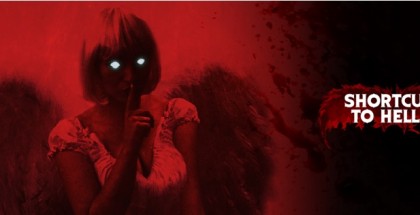Bohemian Rhapsody rocks living rooms as digital movie sales climb
David Farnor | On 05, Jan 2020
Bohemian Rhapsody rocked living rooms last year, becoming the best-selling title of 2019 with more than 1.7 million copies sold across physical and digital home entertainment formats.
The film’s success led the way in a year of growth for the home entertainment sector, which grew by 9.5 per cent, bringing its total market value to £2.6 billion.
Figures from the British Association for Screen Entertainment (BASE) show that subscription streaming services continue to dominate home entertainment: 65.9 per cent of that market value is generated by SVOD services such as Netflix or Amazon Prime Video.
But with 39.6 per cent of SVOD subscribers also buying physical or digital formats, as well as the 7.2 million consumers without subscriptions, the transactional home entertainment market remains vital and worth more than £891 million. 54 per cent of that value is attributed to the purchase of DVD, Blu-ray and 4K UHD formats, underlining that where ownership is concerned, the disc is currently still the preferred choice for many fans, collectors and gifters. Indeed, 42 per cent of consumers who made a physical transaction within the past 12 months did so to add to a collection, 43 per cent bought to give as a gift, and 46 per cent so they could re-watch on multiple occasions5.
When purchasing physical formats, UK consumers are increasingly seeking out the highest quality home entertainment experiences, with Blu-ray now accounting for 27 per cent of the disc market value, up from 24.3 per cent in 2018. Within the Blu-ray format, 4K UHD sales have seen yet another year of growth, now representing 16.3 per cent of the Blu-ray market, and a total of 4.3 per cent of the overall disc market.
At the same time, growth in EST (electronic sell-through, or digital purchase) – 4.5 per cent in volume and 3.5 per cent in value – suggests that the digital revolution that has taken place in recent years is permeating the choices consumers are making for owned media too, with increasing numbers of consumers opting to grow their digital collections as well as their collections on shelves at home. On average across the top 10 titles of 2019, digital purchase now accounts for 33 per cent of copies sold, with two titles (Twentieth Century Fox’s Bohemian Rhapsody and The Walt Disney Company’s Avengers: Endgame) selling in excess of half a million digital copies. Indeed, all of the EST top 10, including hits like Toy Story 4 and Sony Pictures Home Entertainment’s Venom, sold in excess of 175,000 units as digital transaction becomes further embedded in consumer behaviour as one of a suite of options for accessing video content.
BASE suggests that subscription streaming can also serve as a launchpad for original content that then goes on to reach a wider audience via transactional formats.
The top 10 combined disc and digital titles all sold more than half a million copies in 2019, and a mixture of music-led and action-adventure titles led the way. In the year that Twentieth Century Fox was subsumed into The Walt Disney Company, the former studio went out on a high, the success of its Freddie Mercury biopic hot on the heels of Fox’s 2018 runaway hit, The Greatest Showman, which continued to perform strongly in 2019, selling a further 468,000 copies across all formats (giving it total sales to date of more than 3.1 million copies). Warner Bros. Home Entertainment’s A Star Is Born also capitalised on the nation’s love of musical dramas, selling 702,000 copies, while the soundtrack also enjoyed huge success on the music charts.
Leading with 18.6 per cent of disc value market share, Disney had a particularly strong year across all formats, with not only Toy Story 4 selling 827,000 copies), but also Mary Poppins Returns selling well (751,000 copies) and Ralph Breaks the Internet (360,000 copies), as well as live-action and photo-realistic remakes of classic Disney animations; Aladdin (637,000 copies), The Lion King (679,000 copies) and Dumbo (392,000 copies). Huge Marvel hits including Avengers: Endgame, which sold more than 1.33 million copies to land at second place on the combined chart, Captain Marvel (638,000 copies), and catalogue title Avengers: Infinity War (351,000 copies) also featured in the best-selling titles of the year.
Proving that depth of content is vital, Universal Pictures Home Entertainment continues its reign as the largest disc distributor based on volume, and with broad success across not only the studio slate, but also Paramount Pictures, DreamWorks and, as of August, Entertainment One. Tapping into the recent wave of successful music-led films, Rocketman came out on top as the studio’s best-selling disc title in 2019, Danny Boyle’s Beatles-inspired hit, Yesterday, performed well, and even outside of its new release window, Mamma Mia! Here We Go Again became the studio’s fourth bestselling title in 2019.
In the TV market, Game of Thrones: Complete 8th Season (Warner Bros. Home Entertainment) delivered an extraordinary end to the year, with more than 192,000 copies of the culmination of George RR Martin’s opus sold in the final four weeks of the year, topping the TV title chart and landing in the top 10 chart for consumer spend on disc, also helping the Game of Thrones catalogue secure the title of best-selling TV franchise of 2019.
Flying the flag for original TV content, Chernobyl (Acorn Video by RLJ Entertainment) saw sales of 116,000, making it the second highest selling TV title of the year. BBC Studios continued to see franchise success with Peaky Blinders as well as both the New and Classic Series of Doctor Who, the latter of which ranked as the second highest selling TV franchise of the year.
“Subscription services have undoubtedly changed the face of the home entertainment category and 2020 will see that change continue, with the UK launch of direct-to-consumer platforms like Disney+ presenting both challenge and opportunity for the video category. On the one hand, must-see content will be easier to access than ever before thanks to digital delivery across devices, but on the other hand many commentators also believe there is likely to be a ceiling to the number of subscription services consumers are willing to sign up for,” concludes BASE’s report. “What is clear from 2019 data is that ownership, whether digital or physical, remains the favoured route for many to the content they can’t afford to miss.”



















